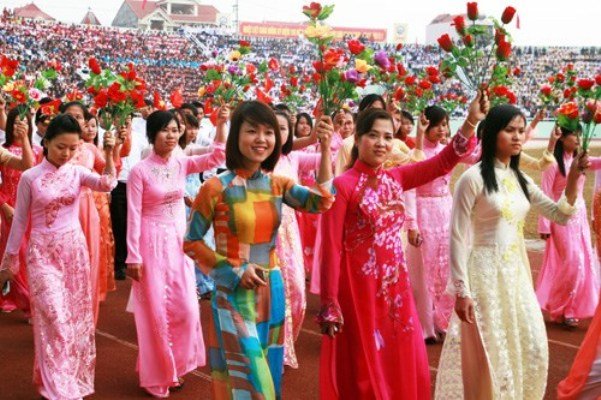Vietnam has among the most progressive gender equality laws in Asia
"As regional business leaders convene in Hanoi next week (11-13 September 2018) for the World Economic Forum on ASEAN, they have an opportunity to learn from Vietnam’s successes and shortcomings on promoting equality between men and women", Babeth Ngoc Han Lefur, Country Director, Oxfam in Vietnam said.
 |
In her opinion, Vietnam has among the most progressive gender equality laws in Asia. It was among the first countries to ratify the UN’s CEDAW convention on women’s rights in 1982, and Vietnamese women’s labour force participation of over 73% is one of the highest in the region.
There is compelling evidence that women in leadership in companies drives profits and gives businesses a competitive edge. On a national level, greater gender equality in the workforce provides enormous macroeconomic opportunity.
The McKinsey Global Institute asserted in 2015 that if women participated equally in the global economy, they could generate additional GDP worth $28 trillion by 2025. That amount is roughly equivalent to the size of the Chinese and US economies combined.
In order for government and business leaders to do better, they must begin by addressing three key barriers to economic equality: Agree that the idea that ‘our economic model is gender-neutral’ is a myth; Women’s economic empowerment is a practical selling point for companies and business; The biggest barrier to change is often the deeply held social norms, beliefs and behaviours within companies and organisations’ own practices.
In Vietnam, the legal environment provides a good foundation for companies to develop comprehensive gender policies within their organisations as well as in business operations. The bigger and more complex task is to enhance gender diversity thinking and culture at the workplace, such as discouraging gender stereotyping, penalising gender discrimination, and promoting values and behaviours of equality and diversity.
Businesses that genuinely strive for inclusion tackle the solution with a comprehensive inside/outside strategy, including good policies, a business culture that values women’s leadership, and contributions to shared prosperity in society. Businesses’ competitive edge does not come only from the maximisation of profits; it lies in gender diversity and environmental sustainability that drive business growth.
On the occasion of the World Economic Forum on ASEAN, Oxfam launches a discussion paper entitled ‘The Future of business: Shaping inclusive growth in South East Asia’ that presents a spectrum of responsible business models that can help to deliver more sustainable and inclusive economic development, zooming into gender equalities at work.

